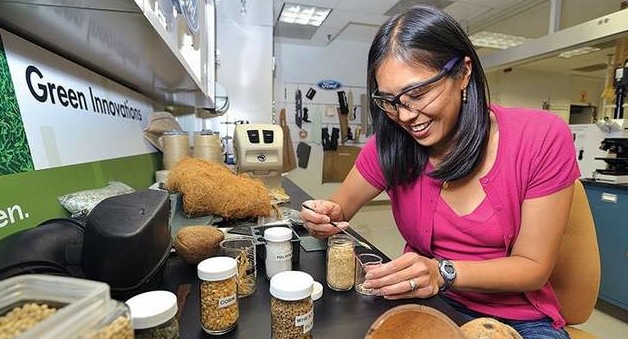
Yes, you heard that right...the two companies are looking into using tomato fibers for making automobile parts! They're testing the durability of this idea in relation to car wiring brackets and storage containers. Something like this is obviously very bio-friendly, as it employs tomato skins.
"We're exploring whether this food processing byproduct makes sense for an automotive application," said Ellen Lee, plastics research technical specialist for Ford. "Our goal is to develop a strong, lightweight material that meets our vehicle requirements, while at the same time reducing our overall environmental impact.""We are delighted that the technology has been validated," said Vidhu Nagpal, a Heinz packaging director. "Although we are in the very early stages, and many questions remain, we are excited about the possibilities this could produce and the advancement of sustainable 100% plant-based plastics." This is the first time the auto industry and plants have crossed paths. Henry Ford looked into innovative ways to use soybeans. Even today, Ford uses bio-based materials in various areas of its cars. For example: ■ Rice hull-filled electrical cowl brackets ■ Cellulose fiber-reinforced console components ■ Coconut-based composite materials ■ Recycled cotton for carpeting and seat fabrics ■ Soy foam seat cushions and head restraints Maybe there's a "ketchup car" in your future. :)
Book An Appointment